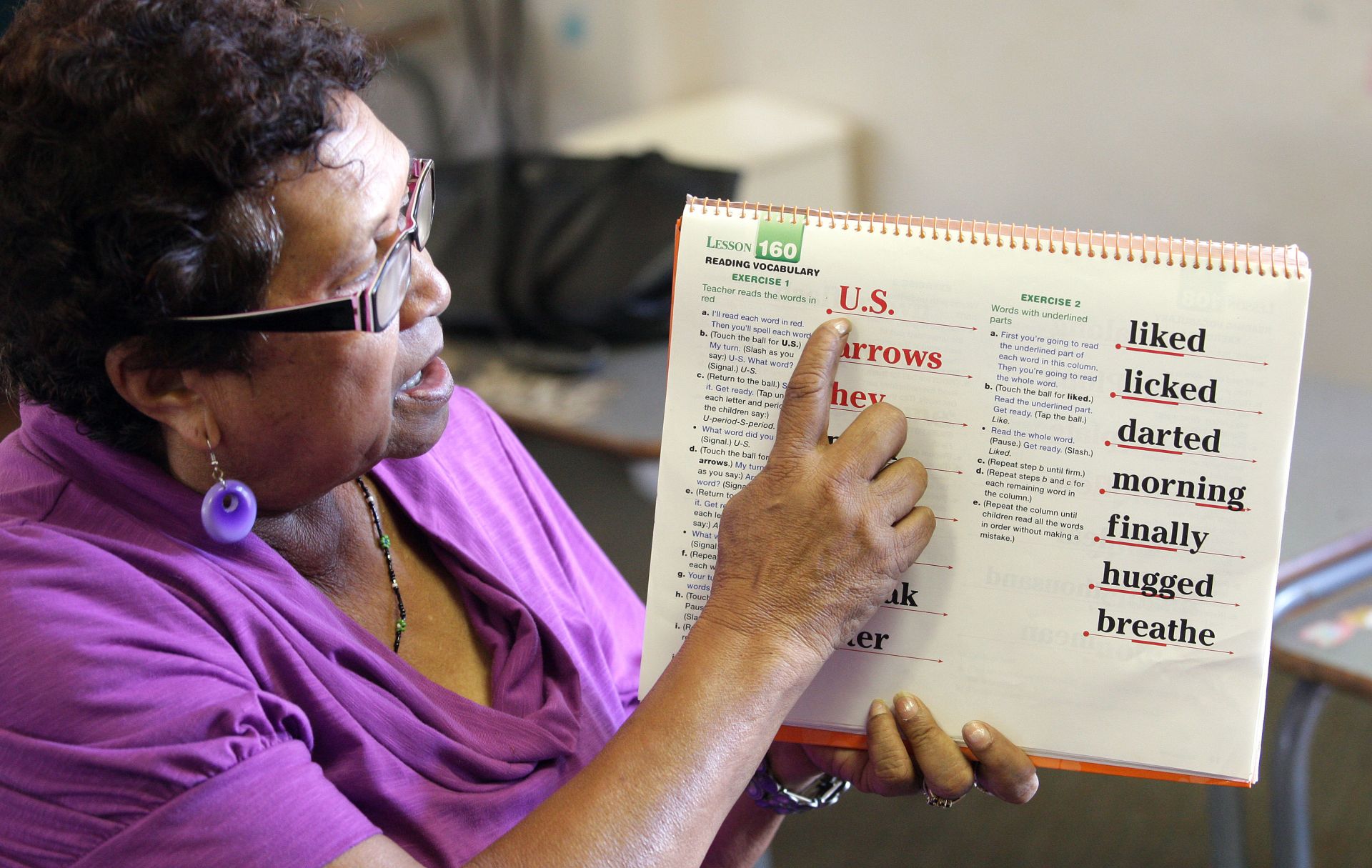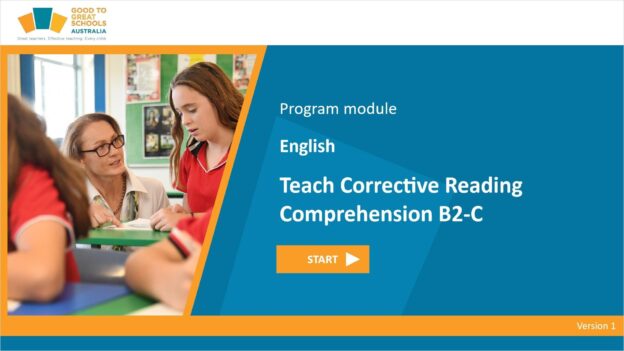
Program Module
Teach Corrective Reading Comprehension B2-C
Overview
This module is designed to prepare educators to teach Corrective Reading Comprehension (CRC) Levels B2 and C. It will cover how to use CRC in the structuring of students’ reasoning, comprehension, writing and information-processing skills through structured exercises and evidence-based Direct Instruction (DI) strategies.
After an overview of the CRC program’s history, its place within the broader DI framework and its intended audience, teachers will learn the key skills taught at both levels, understand the program’s materials and time requirements, and review placement testing, grouping and seating strategies. Guidance on using the Teacher’s Guide, lesson scripts and other resources is also provided to ensure smooth implementation. By the end of the module, educators will be fully equipped to deliver CRC B2 and C lessons with fidelity, ensuring students build advanced comprehension and reasoning skills in a structured, supportive learning environment.
Learning intents
Context setting
Understand the direct instruction content and the rationale behind program sequencing (3.1.02).
Understand importance of placement test in placing students in programs and levels (3.2.02).
Demonstrate effective use of instructional time by managing classroom (3.4.02).
Preparing to teach
Demonstrate techniques that engage students and deliver lesson components to fidelity (3.1.02).
Understand how to extract student mastery data from curriculum, assessment, and reporting (3.1.03).
Demonstrate ability to teach lessons using direct and explicit instruction teaching techniques (3.2.01).
Implement all parts of direct and explicit instruction lessons (3.2.07).
Corrections
Communicate corrective feedback to students during instruction and independent learning (3.6.01).
Understand purpose of providing timely and appropriate feedback to students about their learning and behaviour (3.6.02).
Demonstrate appropriate corrective feedback and effective teaching procedures for diagnosis and remediation of academic and behavioural errors (corrective actions when correcting errors) (3.6.02).
Independent work – Workbook
Demonstrate direct and explicit instruction concepts in developing independent work that aligns to program being taught (3.1.04).
Mastery tests
Plan group instruction based on mastery data and program guidelines (3.2.08).
Demonstrate remedies and re-testing as indicated in direct instruction following mastery tests and/or student checkouts and use correction procedure when students make errors (3.6.01).
Implement in-program and out of program assessments to evaluate student mastery levels (3.6.06).
Review mastery test data to determine individual and group mastery (3.6.06).
Motivating students
Demonstrate a range of verbal and non-verbal communication strategies to support student engagement in small and large group instruction (3.1.05).
Apply classroom practices across all activities by setting clear behavioural expectations and facilitating routines, orderly transitions, and bell to bell teaching (3.4.02).

Prerequisite
- Learn Effective Teaching Essentials

Assessment
- Test: Knowledge and skills taught in the lessons.

Certification
Participants are eligible for certification based on attendance and completion of assessment requirements for each module.
- Certificate of Completion: Complete online training and knowledge and skills tests.


